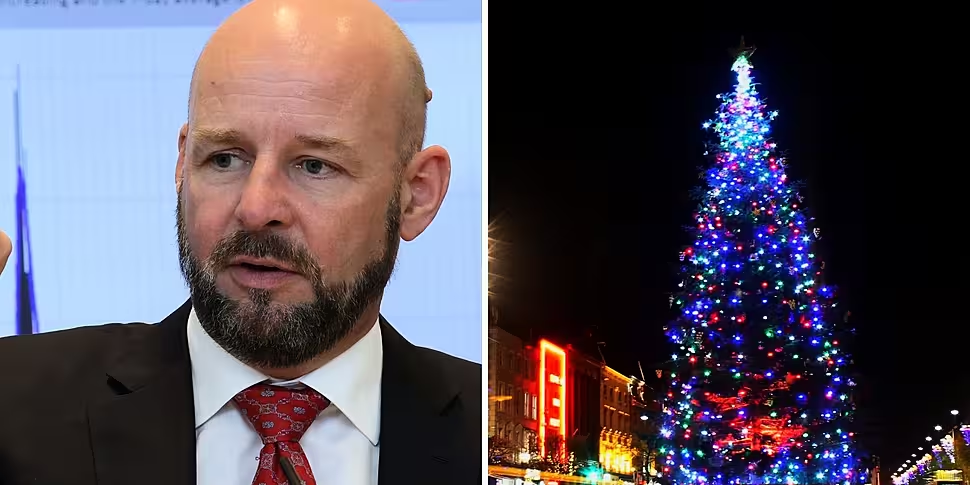Older people with booster vaccines should be much safer at family dinners this Christmas.
That's according to Professor Philip Nolan, chair of NPHET's Epidemiological Modelling Advisory Group.
He was speaking as the latest modelling suggests up to 200,000 people could pick up the virus next month – with as many as 4,000 people hospitalised over Christmas.
But Prof Nolan told Newstalk Breakfast it will not take too much to drive the virus back down again, if we act now.
"The reproduction number's currently about 1.3 - we only need to reduce contacts - or to mitigate the risk of contacts - by about a third to bring the virus back under control.
"So I remain optimistic people, if they hear the message [of] get back to the basics, there is every hope that we won't see the scenarios set out in the models and that we'll bring the virus back under control."
He says Christmas family gatherings are a reality due to booster vaccines.
"Personally I'm going to prioritise Christmas with my family - at that time, I think the vulnerable people in my family would have been boosted.
"So I'm cutting my other social contacts now, to reduce the risk now, in order that I can spend Christmas safely with family."
Asked if older people would be safe to mingle with family over the Christmas period, he says this is a real possibility.
"They are much safer, and if we reciprocally pay attention to the basics - and don't become infected in the run up to Christmas - that's a relatively safe circumstance, depending on the scale of disease at that time".
'4,000 hospital admissions'
He says the projections, suggesting a surge in cases, are not inevitable.
"We've gone very quickly from 2,000 cases a day to 4,300 cases a day in a matter of three weeks.
"And we can see where it's going - our more optimistic projections would suggest, that if nothing changes, you're looking at 200,000 cases in the course of December alone.
"That'd be a minimum of 4,000 admissions to hospital and 600 admissions to ICU.
"I think the important thing to emphasise is this is not inevitable - those people are not infected yet.
"What we need to do is make it more difficult for the virus to transmit".
Prof Nolan says this includes self-isolating and a PCR test if symptomatic, restricting movements if identified as a close contact and taking antigen tests.
Washing hands, wearing a facemask and good ventilation are also paramount, he says.
'Snake oil' tweet
Asked about a tweet back in May, where he described a marketing campaign for antigen tests as 'snake oil', he admits this was not the best approach.
"That was a tweet in particular context at a particular time in reaction to some, I think, very ill-advised marketing from a supermarket chain
"But... I don't think that was the wisest communication or the clearest communication I've ever done".
Can I get some snake oil with that? It makes for a great salad dressing with a pinch of salt and something acerbic. Stay safe when socialising outdoors over the next few weeks. Small numbers, distance, masks. These antigen tests will not keep you safe. https://t.co/CsoTNrpfye
— Professor Philip Nolan (@PhilipNolan_SFI) May 8, 2021
"The formal position is there's no such thing as a good test or a bad test, it's what application are you using the test for?
"We've been using antigen testing since the spring in the management of outbreaks and in congregated settings.
"We're now extending their use... the testing of asymptomatic close contacts.
"They have their utility but I think we really do very clearly need to listen to what our general practitioners are telling us: you should not use these tests if symptomatic.
"If you're symptomatic, self-isolate and get a PCR test."









